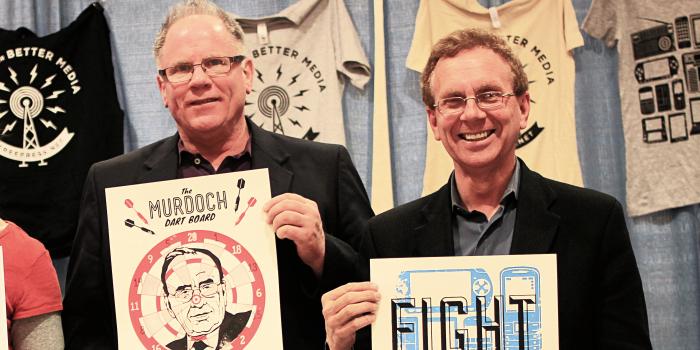In Lawsuit Filing, Free Press and Allies Condemn the FCC for the Appalling Lack of Diversity in Radio and TV Ownership

WASHINGTON — On Friday, Free Press and several allies filed a reply brief in the U.S. Court of Appeals for the Third Circuit challenging the Federal Communications Commission’s repeal and relaxation of several of its broadcast-ownership rules that limit media consolidation.
In the reply brief, Common Cause, the Communications Workers of America, Free Press, the Media Mobilizing Project, the Prometheus Radio Project and the United Church of Christ Office of Communication, Inc., reject claims by FCC lawyers and broadcasters that the groups lack legal standing to bring this case against the agency.
The groups state that the FCC has failed to meet its statutory obligation to promote race and gender diversity in broadcast-media ownership. This failure is reflected in data showing that women and people of color are woefully underrepresented among broadcast-license holders — exacerbated by agency policies that carelessly promote further broadcast-ownership consolidation, and by the agency’s failure to consider how consolidation affects ownership opportunities for women and people of color.
At the end of 2018, the FCC began another of its congressionally mandated rulemaking processes to determine whether the remaining broadcast-ownership regulations are “necessary in the public interest.” In previous reviews of its rules, the agency failed to properly investigate or address the lack of ownership diversity, even though the Third Circuit ordered it to do so in three previous decisions.
The groups argue that the FCC’s obligation necessitates collecting accurate data about ownership among women and people of color. Without this information, it’s impossible for the agency to make any claims about the impact its deregulatory agenda will have on ownership diversity.
“The FCC tries to have it both ways — claiming it has addressed race [and] gender ownership diversity yet insisting it cannot,” the brief reads. “Neither is true: The FCC must heed its obligation to at minimum do no harm to race [and] gender diversity by apprising itself of knowable facts.”
Free Press Policy Manager Dana Floberg made the following statement:
“Congress put broadcast-ownership limits in place for a reason: to promote a diversity of choices among local stations. We sued the FCC for turning its back on this core principle, placing station ownership in too few hands and denying too many of us broadcast media that serve community needs.
“The FCC has repeatedly failed to foster a media system that reflects our nation’s diversity. On several occasions, the court has told the agency that it can’t bless further media consolidation without first examining how such consolidation impacts ownership opportunities for women and people of color. The FCC responded by further weakening its rules with zero concern about the appalling lack of diversity in ownership.
“That FCC attorneys would attempt to deny the legal standing of groups representing the interests of people the agency was created to serve is an alarming measure of just how far the agency has strayed from its public-interest mandate.
“The FCC has a statutory obligation to promote competition, diversity and localism in media ownership. Not only has the agency failed to meet this obligation, but it has also failed to adequately measure diversity in ownership among its license holders.
“The resulting media consolidation has left us with far less of the local news and information communities need to stay informed. To meet the needs of communities of color and low-income families, the FCC must nurture ownership diversity, not let giant companies like Nexstar and Sinclair devour even more local stations.”




